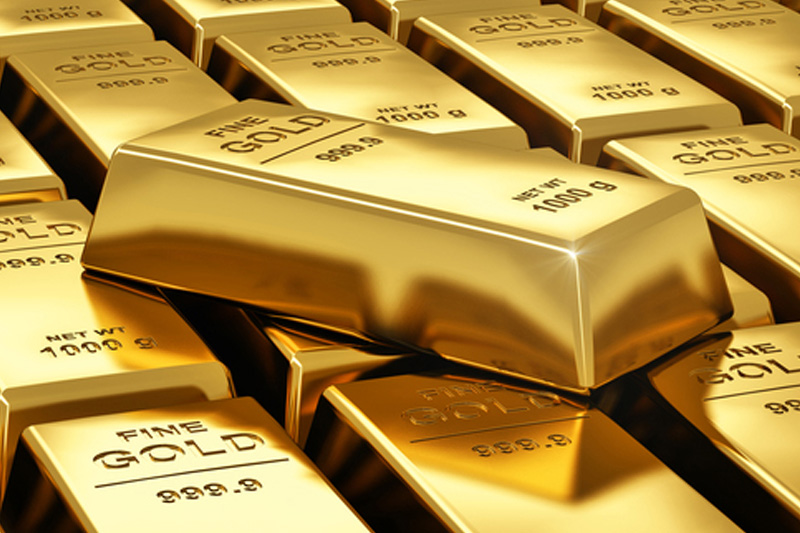Investing.com -- Gold surged on Monday experiencing its strongest one-day moves in nearly two months, amid dovish comments from a prominent Federal Reserve official on the timing of the U.S. Central Bank's first interest rate hike in nearly a decade and continuing concerns surrounding the economy in China.
On the Comex division of the New York Mercantile Exchange, gold for December delivery traded in a broad range between $1,089.10 and $1,108.40 an ounce, before settling at 1,106.20, up 12.10 or 1.11% for the day. At one point, gold futures gained more than 1.45% enjoying its highest one-day move since June 18. In spite of gold's rally on Monday, the precious metal is still down nearly 5% over the last month.
Gold likely gained support at 1,081.40, the low from Aug. 7 and was met with resistance at 1,133.80, the high from July 20.
Fed governor Stanley Fischer insisted on Monday that lift-off for a September rate is not a certainty, in spite of solid numbers last week from the U.S. Department of Labor's July national economic situation report. In an exclusive interview with Bloomberg, Fischer indicated that while the labor market is moving closer to full employment, inflation still remains below the levels needed to allow the Fed to normalize policy.
On Friday, the Labor Department said the number of non-farm payrolls in the nation during the month of July increased by 215,000, in line with consensus estimates of a 212,000 gain. The figure received a boost from a 60,000 gain in Trade & Transportation jobs, as well as a 40,000 increase in Professional & Business service positions. The Labor Department also upwardly revised non-farm payrolls for June by 8,000 to 231,000. Fischer is widely considered the second-highest ranking official at the Fed behind chair Janet Yellen.
"The interesting situation in which we are is that employment has been rising pretty fast relative to previous performance and yet inflation is very low," Fischer told Bloomberg. "And the concern about the situation is not to move before we see inflation as well as employment returning to more normal levels."
Gold, which is not attached to dividends or interest rates, struggles to compete with high-yield bearing assets in periods of rising rates.
Elsewhere, in China inflation for July rose moderately by 0.2% to 1.6% spurred by rising food prices throughout the world's second-largest economy. Inflation levels still fell significantly below the People's Bank of China's targeted goal of 3%. China's Producer Price Index also plunged 5.4% for the month, extending its longstanding streak of monthly declines to 40. Analysts expected the index to decrease by approximately 5% in July. Over the last two months, Chinese equities have lost an estimated $2 to $3 trillion in value, amid liquidity concerns and the slowest growth in the economy in more than a decade.
China is the world's largest producer and second-largest consumer of the precious metal.
The U.S. Dollar Index, which measures the strength of the greenback versus a basket of six other major currencies, fell 0.32% to an intraday low of 97.35 in U.S. afternoon trading. Last week, the index soared to a four-month high above 98.40. Dollar-denominated commodities such as gold become more expensive for foreign purchasers when the dollar appreciates.
Silver for September delivery soared 0.479 or 3.23% to 15.290 an ounce.
Copper for September delivery jumped 0.068 or 2.93% to 2.401 a pound.
